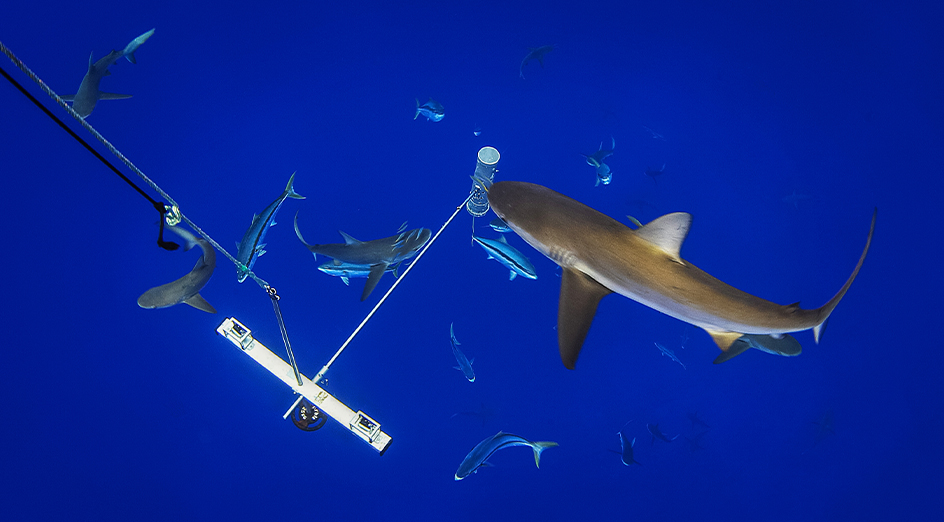Fish and sharks living in the open ocean are impacted more by human pressure than their seabed-dwelling counterparts, according to a new study from The University of Western Australia.
The study published in Science was led by Dr Tom B. Letessier, from the Zoological Society of London and UWA’s School of Biological Science, and co-authored by Wen Family Chair in Conservation Professor Jessica Meeuwig and Dr Chris Thompson, from UWA’s School of Biological Science and Oceans Institute.
Researchers combined size measurements of almost one million fish and sharks taken from 14 years of baited camera surveys across the globe to investigate the effectiveness of marine protected areas for fish either living in midwater (pelagic) or seabed (benthic) ecosystems.
 Image: Underwater camera being used to study sharks and fish. Pciture: Manu San Felix
Image: Underwater camera being used to study sharks and fish. Pciture: Manu San Felix
“In both ecosystems individuals were larger if they were found in highly protected areas and remote from cities and seafood markets,” Dr Letessier said.
“But pelagic fish such as tuna, silky sharks and sardines found near markets were more likely to show signs of vulnerability than seabed species like flounders, wrasses and rays.”
The results suggest that some size classes of seabed dwellers are more protected because their habitat offers more refuge than exists in the midwater environment.
“Healthy oceans require that we effectively conserve all ecosystems and aid habitat recovery, but we also need to be cautious about the expansion of already overexploited pelagic fisheries,” Dr Thompson said.
Professor Meeuwig said many pelagic shark and fish populations were at historically low levels.
“Reversing this trend is possible but requires more highly protected marine areas in remote locations, including in international waters which will be facilitated by the new United Nations High Seas Treaty,” she said.
The High Seas Treaty is an agreement under the United Nations Convention on the Law of the Sea for the conservation and sustainable use of marine biological diversity in areas beyond national jurisdiction.
“Habitat restoration and marine protected areas in coastal regions near markets and cities would benefit seabed ecosystems,” she said.







